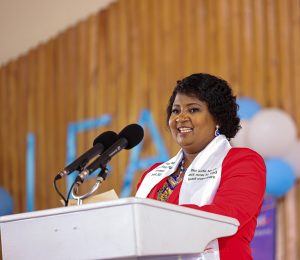Regional human rights groups and East African citizens have condemned what they describe as a “wave of repression” in Tanzania ahead of a scheduled national vote, alleging widespread human rights violations, suppression of dissent, and the elimination of opposition voices.
In a strongly worded statement issued in Nairobi, members of the East African Citizens Coalition said the situation in Tanzania “goes against the very principles that underpin the East African Community (EAC)” and called on regional leaders and international bodies to intervene.
“We stand here as East African citizens, mandated by the fact that Jumuiya ni yetu (the community is ours). Borders will not limit our brotherhood and sisterhood,” the coalition said. “Injustice anywhere is a threat to justice everywhere.”
Claims of Electoral Suppression
The statement dismissed reports that Tanzania is holding a credible election this week, describing the process as “a coronation” for President Samia Suluhu Hassan, whose administration has been accused of systematically dismantling opposition politics.
Opposition party CHADEMA—led by Tundu Lissu, who has been repeatedly detained and charged with treason—has reportedly been banned from participating in the election after demanding reforms to the electoral code. Many of its leaders and supporters have been arrested or disappeared in recent months.
The coalition cited reports of enforced disappearances, arbitrary detentions, torture, and extrajudicial killings, describing the situation as a “silent epidemic of fear.” Human rights watchdog Amnesty International recently warned of an escalating crackdown on dissent in Tanzania, noting that the environment “cannot produce a free and fair election.”
Clampdown on Media and Civil Society
Media freedom has also been severely restricted. According to the statement, international media outlets have been denied entry into the country, while several local stations and journalists have had their licenses withdrawn.
Digital freedoms have similarly come under pressure. Activists and online creators have been detained under cybercrime and media laws that critics say are being used to stifle dissent.
Targeting of Religious Leaders
The statement further accused Tanzanian authorities of targeting outspoken religious leaders.
The Ufufuo na Uzima Church, led by Bishop Josephat Gwajima, was deregistered earlier this year after calling for an end to abductions and enforced disappearances. Other clergy members, including Bishop Benson Bagonza and Bishop Dickson Kabigumila, have reportedly fled the country following threats.
“These attacks amount to violations of freedom of religion and expression, protected under international human rights law,” the statement noted.
Observers Withdraw
Several foreign governments—including Belgium, Sweden, Germany, and Ireland—have withdrawn from observing the Tanzanian election, citing concerns over transparency and fairness.
The United States is monitoring the situation remotely, while the European Union has not deployed a formal observation mission.
Despite the deteriorating situation, the African Union Election Observation Mission (AUEOM) has arrived in Tanzania, a move that civil society groups have criticized as legitimizing a “sham process.”
Regional Appeal for Action
The East African coalition urged the African Union, SADC, and EAC to take a firmer stance against human rights abuses in Tanzania, warning that silence could embolden authoritarianism across the region.
“Africans are rightfully outraged that institutions meant to defend democracy have chosen silence over principle,” the statement read.
“As despots regroup to oppress citizens, we too are regrouping to reclaim our countries and our freedoms.”
The Tanzanian government has not yet responded publicly to the latest allegations. Authorities have previously denied accusations of repression, maintaining that law enforcement actions are necessary to preserve peace and national security.





